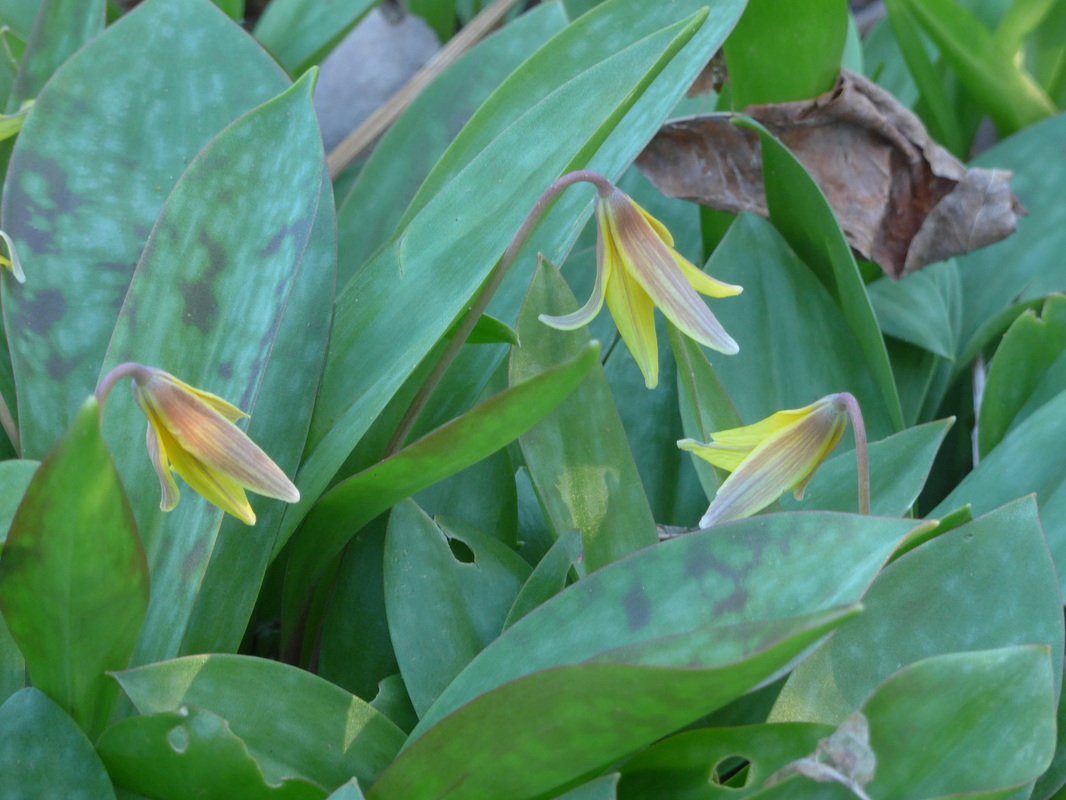6 May 2016
Trout Lily, Dogtooth Violet, Adder's Tongue
Erythronium americanum
Bangor, Maine
Photo by Lucy Quimby
Found in early spring, flowering March - May, Trout Lily received this common name for its two mottled brown leaves that resemble a brown trout fish. They are attached at the bottom of the plant (basal) and the one-inch flowers appear singly on a long, bare stalk. There can be several flower stalks from each plant. This particular clump was found in a ditch alongside Kenduskeag Avenue. The Encyclopedia of North American Wildflowers says they are found in woodlands and meadows and grow from four to twelve inches in height.
Trout Lily, Dogtooth Violet, Adder's Tongue
Erythronium americanum
Bangor, Maine
Photo by Lucy Quimby
Found in early spring, flowering March - May, Trout Lily received this common name for its two mottled brown leaves that resemble a brown trout fish. They are attached at the bottom of the plant (basal) and the one-inch flowers appear singly on a long, bare stalk. There can be several flower stalks from each plant. This particular clump was found in a ditch alongside Kenduskeag Avenue. The Encyclopedia of North American Wildflowers says they are found in woodlands and meadows and grow from four to twelve inches in height.


